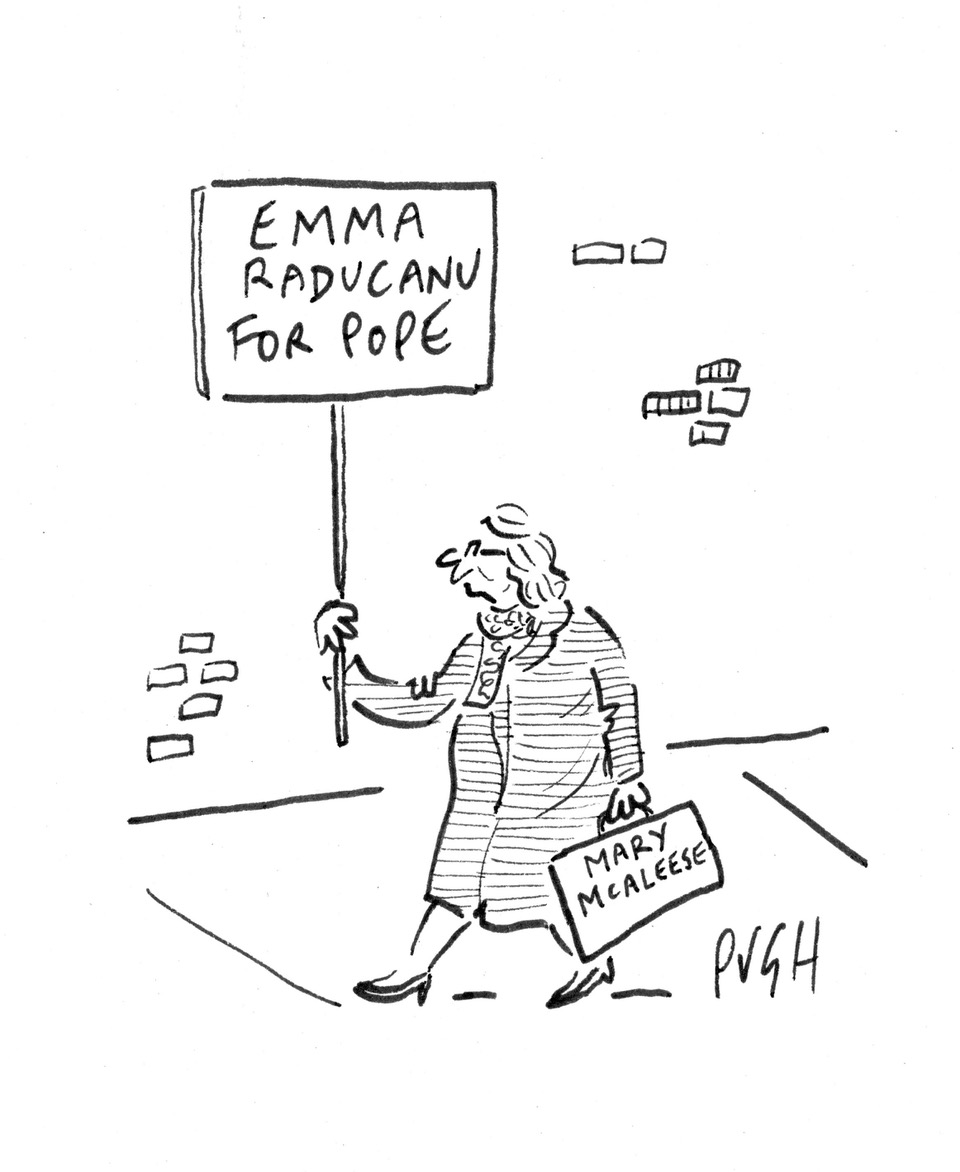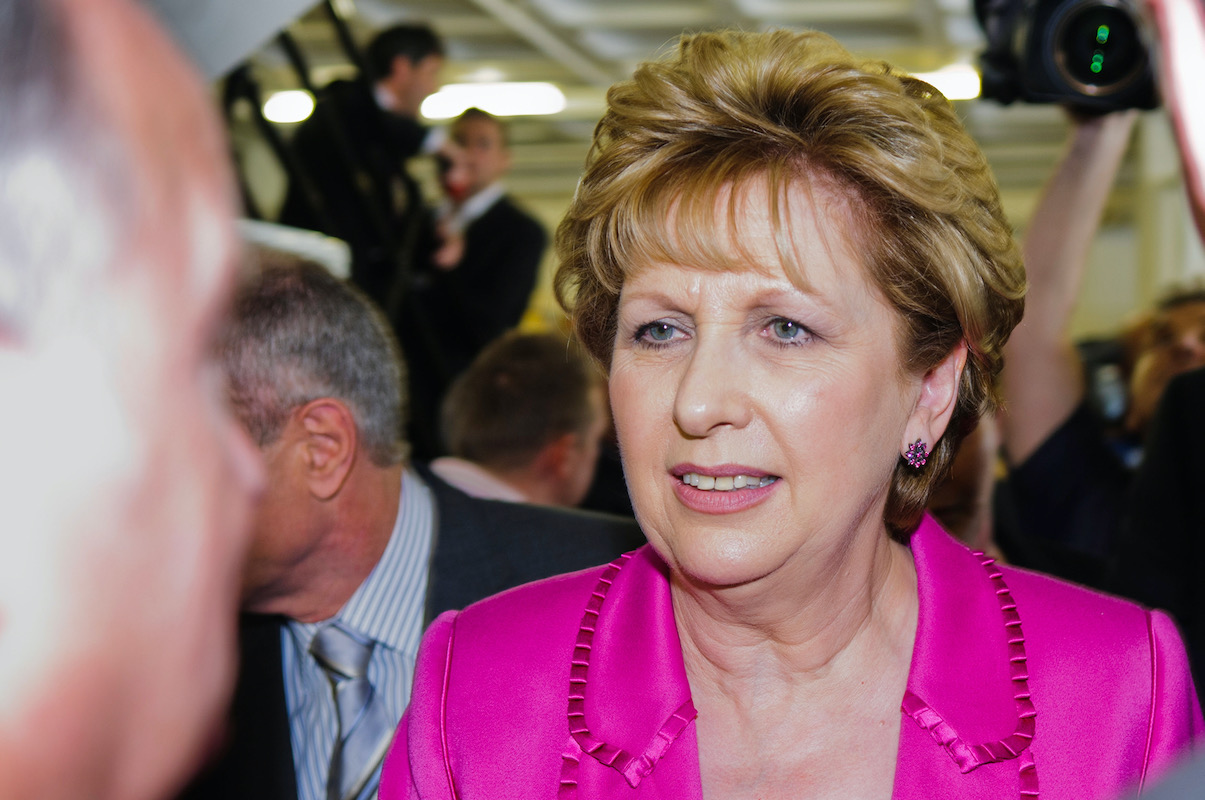The Catholic Church has yet to make positive progress towards being able truly to listen to the voices of minority voices and the laity as a whole, according to former President of Ireland Dr Mary McAleese.
Addressing the Root and Branch lay-led inclusive synod, she said that she does not “find Pope Francis inspirational at all”.
She said: “Why have the hopes and promises of Vatican II disappeared to a dead end?”
Commenting on plans for the 2023 Synod of Bishops on synodality, she felt there was no move to stop lay discussion continuing to be “kept well away from matters of doctrine”.
The topic of her 50-minute speech was No Synodality Without Freedom of Speech – Canon law must acknowledge the human rights of Church members.
Unimpressed by the concept of “synodality”, she said: “The big s-word in the Catholic Church was scandal. It enveloped the Church in an ecclesial winter. Today another big s-word – Synodality – promises a great deal – a synod on synods for October 2023 no less.” Sadly, she said, on present form, unless something miraculous interrupts the current Francis trajectory, the destination will be a dead end called “bitter disappointment”.
But she also said the Root and Branch synod could well be the miracle that is needed.

Dr McAleese, a canon lawyer currently based in Rome, argued that the Church should recognise that God has given every individual “freedom of expression” and make changes to allow for more critical expression among both the priesthood and the laity.
She described how when her son, who is gay, got married many of her priest friends who she described as “not madly radical” offered to give him a blessing. Their offers were declined because the couple did not want to get the priests into trouble.
She argued that they should in future be able to do so without fearing repercussions. “We ask the magisterium, we ask our Popes, we ask our Bishops to stand with us and demand that our rights are fully honoured by the Church,” she said.
Speaking from a video link in Rome to an online and live Bristol audience, McAleese said: “Pope Francis has said this is a moment to dream big, and that is what we are doing, and we invite him to join us.” She argued that Pope Francis’ reforms to the synodal process, which she described as “extravagantly hyped”, continue to fall short of true reform.
The synodal process ”has provoked a panicked curial and papal retrenchment but it has also reenergised many faithful across the universal Church, for this is their Church, our Church too,” she said.
She described the Germany synodal path and Root and Branch as the only hope for the church.
“Without a change of course there is little likelihood the forthcoming Synod on Synodality will deliver a measureable ecclesial thaw. Greater hope lies in this lay-led Synod and the German Synod both of which offer a progressive model of synodality based on principles which on current form will be absent from the Synod of Bishops Synod on Synodality, namely equality of all Church members, freedom of speech and agendas that are fully open to discussion of contentious issues.”
The event was chaired by journalist and campaigner Joanna Moorhead, arts editor of The Tablet, and also included welcomes Bishop of Clifton Declan Lang and the Church of England Bishop of Bristol Vivienne Faull.
In the question-and-answer session led by Moorhead, Dr McAleese called on all caring Catholics across the world, lay and clerical, to set up their fringe synods and send their views directly to Rome, by-passing the current synodal structure which states the people may talk in their dioceses but only the bishops can discern what they will hear.
“We have to hope and pray that enough faithful in every diocese including laity, religious, priests and bishops will find the courage to insist that the recognition in Church law of the equality and intellectual freedom of all Church members must be a priority in the national episcopal reports that will go to Rome for the 2023 Synod. It will be the most important reset button the Church has ever hit.”
The pro-reform synod has seen much discussion on Church democracy take place throughout the week including a panel on moral theology in which theologian Tina Beattie said: “A great deal depends on how many people there are in Rome who are willing to put their heads above the parapet.”



 Loading ...
Loading ...